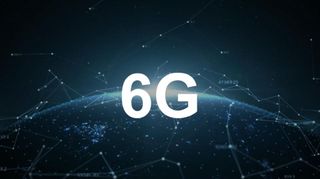Nokia to lead EU's flagship Hexa-X 6G programme
The first commercial 6G services could be available in 2028

Nokia is to lead the European Union’s flagship 6G research programme, promising to unite the human, physical, and digital worlds with wireless connectivity.
Development of 6G networks is still at an early stage, but the general consensus is that the standard will deliver speeds of 1Tbps and latency of less than 100 microseconds – making it 50 times faster than 5G with just a tenth of the latency.
But this is the bare minimum expected of a new mobile technology. The real advances will be the integration of intelligence and the use of new types of spectrum, such as the terahertz band.
A number of private and public research projects are currently underway across Europe, Asia and the US and it is thought the first commercial 6G services could be in operation as early as 2028.
- These are the best business SIM-only deals around today
- And the best business broadband deals
- Here are the best business mobile phone deals
University of Surrey 6G
The Hexa-X project is funded by the EU’s Horizon 2020 resarch and innovation initative and seeks to develop key 6G technologies and use cases. Participants include telecoms equipment manufacturers, operators, industry, and the wider IT ecosystem.
Nokia, which has played a role in the development of every previous mobile generation, has started its work on 6G too. It is working with the 6Genesis project in its native Finland for example. With Hexa-X, Nokia has identified six ‘research challenges’ that must be solved in order to lay the technical foundation for 6G.
These include the creation of intelligent networks that can drive the automation necessary to process the huge amounts of data that 6G will generate, the ability to combine multiple network technologies to create a seamless experience, and sustainability through reduced energy consumption.
Are you a pro? Subscribe to our newsletter
Sign up to the TechRadar Pro newsletter to get all the top news, opinion, features and guidance your business needs to succeed!
Also of great importance, it says, is global service coverage, network security and trustworthiness, and the capability to offer ‘extreme’ experiences driven by imperceptible latencies, seemingly infinite capacity and ultrafast bitrates.
“Even though there is still a lot of innovation in 5G with the release of new standards, we are already exploring 6G in our research lab,” said Peter Vetter, Head of Access and Devices Research, Nokia Bell Labs.
“In the 6G era we will see applications that will not only connect humans with machines but also connect humans with the digital world. Such a secure and private connection can be used for preventive healthcare or even to create a 6G network with a sixth sense that intuitively understands our intentions, making our interactions with the physical world more effective and anticipating our needs, thereby improving our productivity.”
- Here are the best 5G phones around today
Steve McCaskill is TechRadar Pro's resident mobile industry expert, covering all aspects of the UK and global news, from operators to service providers and everything in between. He is a former editor of Silicon UK and journalist with over a decade's experience in the technology industry, writing about technology, in particular, telecoms, mobile and sports tech, sports, video games and media.
Most Popular

